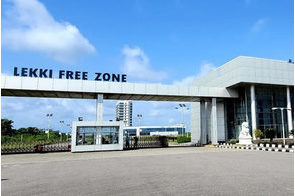Report highlights the challenges of data, reporting on Scope 3 emissions

Summary
The Greenhouse Gas Protocol defines Scope 3 emissions as all value chain emissions resulting from activities and assets not owned or controlled by the reporting organisation.
A new study by ABI Research – a global technology intelligence firm – tagged “Sustainability Assessment” analysed the sustainability activities of 10 of the world’s largest industrial manufacturing conglomerates. A key finding was the importance of Scope 3 activities, particularly the robustness of data collection and reporting tools, for achieving industrial firm sustainability objectives.
The Greenhouse Gas Protocol defines Scope 3 emissions as all value chain emissions resulting from activities and assets not owned or controlled by the reporting organisation. There are 15 Scope 3 categories, although some may not apply to all companies. According to the Carbon Disclosure Project (CDP), Scope 3 emissions typically account for over 75 percent of total emissions, with the share often being over 90 percent for companies in the industrial sector.
According to a statement sent to Financial Nigeria, ABI Research said for Schneider Electric, Siemens, ABB, and Bosch, who were classified as “sustainability leaders”, Scope 3 emissions are over 99 percent of total emissions. The other companies mentioned in the report are GE Healthcare, Hitachi Ltd, Honeywell, LG, Mitsubishi Corp, and Rockwell Automation, Inc.
“Large industrials face many challenges in measuring and reducing Scope 3 emissions, as the process encompasses a wide range of activities from suppliers, consumers, and distributors,” said Alex McQueen, Sustainable Technologies Research Analyst at ABI Research. “Measuring Scope 3 emissions requires dedicated resources, expertise, and specific data collection and management processes.”
Large industrial companies may also find it challenging to obtain data from lower-tier suppliers that may not track their CO2 emissions. Additionally, there is no standardised methodology for Scope 3 emissions calculations and disclosures, creating difficulty in assessing the activities of a broad set of suppliers, each using different data collection and reporting methods.
As regulation regarding the disclosure of environmental data becomes more prevalent, companies should prepare by establishing a robust framework for measuring and managing emissions data, said ABI Research, enumerating steps that companies can take. As a starting point, industrials with a high proportion of Scope 3 emissions should look to identify all relevant Scope 3 emission categories. After that, supplier engagement is vital, and industrial firms should seek support from third-party organisations, such as CDP Supply Chain and EcoVadis, in requesting and managing supplier emissions data. Companies may also tie requirements to provide environmental data into supplier contracts and set targets for reducing supply chain emissions.
“Investing in digital tools helps automate the collection, monitoring, and reporting of Environmental, Social, and Governance (ESG) data, and they can also improve value chain collaboration. Since Scope 3 emissions calculations require the tracking of vast amounts of data, leveraging digital solutions is crucial for effective emissions management and reporting,” McQueen said.
Related
-
Chinese projects in 3 Africa countries not meeting ESG guidelines of China
The projects were in Egypt, Nigeria, and Ethiopia. The Nigerian project, Lekki Free Zone, exhibited "notable ESG risks" ...
-
Group applauds Biden veto of resolution that attacked responsible investing
The president’s veto maintains the ability of investors to consider any and all material risks and opportunities.
-
DuPont publishes 2022 sustainability report
The report details progress on the company’s sustainability strategy organized under three pillars: Innovate, Protect ...










